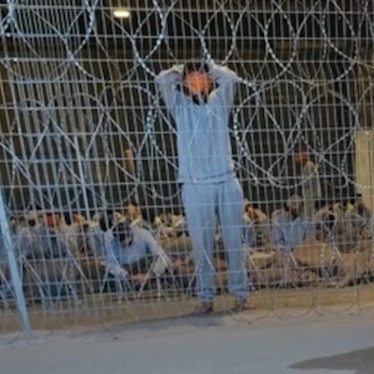Ambassador Robert B. Zoellick
United States Trade Representative
Office of the United States Trade Representative
600 17th Street, NW
Washington, DC 20508
Dear Ambassador Zoellick:
On March 16, 2004, the American Federation of Labor and Congress of Industrial Organizations (AFL-CIO) submitted to the U.S. government a petition under section 301 of the Trade Act of 1974. The petition alleges that China’s systemic failure to protect workers’ human rights constitutes an “unreasonable” trade practice under the act and asks President Bush to take all “appropriate and feasible action,” as authorized by the law, to eliminate the practice.
By the end of April, the administration must decide whether to deny the petition out of hand or accept it for further investigation. For the reasons set forth below, we urge the administration to accept the petition and thoroughly investigate the allegations it sets forth.
We take no position on international commerce or trade agreements per se. Instead, we believe that when trading arrangements exist, they should include meaningful, enforceable protections for workers’ human rights. Similarly, as international human rights organizations, we take no position on job redistribution from one country to another. Rather, we support the right of all persons around the world to work. This right, established by article 23 of the Universal Declaration of Human Rights (UDHR), includes the right of everyone “to free choice of employment” and “to protection against unemployment.” We do, however, strongly oppose the suppression of workers’ human rights to create a comparative advantage so as to attract jobs and increase demand for exports.
Similarly, section 301 of the Trade Act of 1974 defines “unreasonable” trading practices to include a “persistent pattern of conduct” that denies workers’ internationally recognized human rights. China’s practices clearly do so, not only ignoring the UDHR principles that establish the rights to “just and favourable conditions of work” and “to form and to join trade unions,” but also violating the International Covenant on Economic, Social and Cultural Rights (ICESCR), which China ratified in 2001 and is bound to uphold.
International human rights groups, workers’ organizations, the U.S. State Department, the U.S. Congressional-Executive Commission on China, and others have documented and reported overwhelming evidence that China systematically fails to protect workers’ human rights. In its 2003 Country Reports on Human Rights, the U.S. State Department found that “[t]he [Chinese] Government continued to deny internationally recognized worker rights.” The U.S. Congressional-Executive Commission on China’s 2003 Annual Report similarly stated, “China’s poor record in protecting the internationally-recognized rights of its own workers has not changed significantly in the past year.”
The State Department report also noted that in 2003, “workers were not free to organize or join unions of their own choosing”; “genuine collective bargaining still did not occur”; “there was still no officially accepted right to strike”; and standards governing maximum hours and overtime pay “were regularly violated.” Despite some increase in government funding for workplace health and safety programs, the report found that “poor enforcement of occupational health and safety laws and regulations continued to put workers’ lives at risk.” The Congressional-Executive Commission on China’s report presented similar findings, adding also that “workers continue to work hours well in excess of legal limits, and for wages that are frequently not calculated according to law.”
In addition, when China ratified the ICESCR, it issued a reservation to article 8(1)(a), which guarantees “the right of everyone to form trade unions and join the trade union of his choice,” noting that the covenant’s application must instead be consistent with national law, which recognizes only one, state-sponsored workers’ organization. Although the Chinese government has recently permitted certain closely-watched nongovernmental organizations to provide limited workers’ rights-related training and education, if workers illegally attempt to form independent workers’ organizations or protest the many violations of their rights, the government retaliates against the ringleaders with police harassment, arrest and detention, imprisonment, threats, and other state-sponsored intimidation.
Section 301 of the Trade Act of 1974 allows a president to take action to address such a pattern of workers’ human rights abuses when it “burdens or restricts Untied States commerce.” The AFL-CIO’s petition elaborates four different economic analyses to demonstrate that the pervasive workers’ human rights abuses in China meet that threshold.
In a March 30, 2004, speech, President Bush asserted, “I believe this nation can compete anywhere, any time, anyplace, so long as the rules are fair,” noting that “this administration . . . [will] use the tools necessary to make sure that the playing field is level.” There is significant evidence that China is playing by its own unfair rules that allow the systematic violation of workers’ human rights to illegitimately skew the commercial “playing field” in its favor. Section 301 of the Trade Act of 1974 provides the administration with a tool to investigate these claims and determine what action may be appropriate. We hope that your office will take the opportunity to do so.
Sincerely,
/s/
Arvind Ganesan
Director
Business and Human Rights Program
Human Rights Watch
/s/
Mila Rosenthal
Director
Business, Environment, and Human Rights Program
Amnesty International USA







